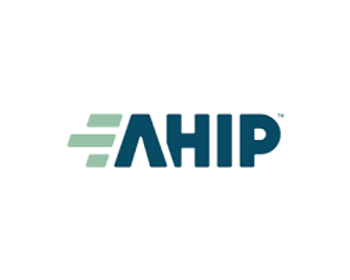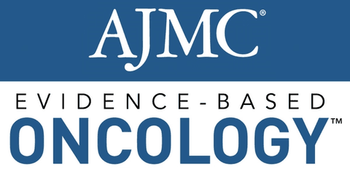
Health insurers commit to reforming prior authorization processes, aiming to enhance patient care and reduce burdens on providers, impacting millions.

Health insurers commit to reforming prior authorization processes, aiming to enhance patient care and reduce burdens on providers, impacting millions.

Up to 257 million Americans could benefit from these prior authorization reforms that could have cross-market implications on health care plans administered through commercial insurers, Medicare Advantage, and Medicaid.

The new playbook details voluntary best practices for value-based care (VBC) payment arrangements and is part of an effort to increase VBC adoption in the private sector.

Promoting health equity isn’t only about consideration of underlying health risks; it’s also about using that data to inform population care as well as give clinicians and their teams more time with the patient in front of them.

A new report from AHIP shows that Medicare Advantage outperformed traditional Medicare on several clinical quality measures, including preventive screenings. However, debate continues over these plans’ cost efficiency and impact on the financial sustainability of rural hospitals.

The playbook from the 3 organizations highlights 5 best practices for data sharing from organizations with real-world experience in value-based care arrangements.

A new report from AHIP indicates that biosimilars have the potential to garner savings of $180 billion over 5 years, but there needs to be a review of the approval process for interchangeability to encourage more approvals.


A new study highlighted that patients with diabetes enrolled in Medicare Advantage (MA) had better outcomes compared with patients in traditional fee-for-service (FFS) Medicare.

Two stakeholders involved in investment and development of behavioral care services discuss the potential of digital therapeutics as a cost-effective alternative to address unmet mental health needs during an AHIP 2022 session.

Panelists of an AHIP 2022 session discussed how future policy, infrastructure, and investment strategies in public health will reinforce the efforts already made during the pandemic, with partnerships and engagement key to optimize innovation.

Community engagement, investment, and quality metrics were spotlighted as potential solutions to address health inequities affecting marginalized communities nationwide.

Panelists taking part in an AHIP 2022 session discuss collaborative strategies among payers, manufacturers, and policy makers to address challenges regarding affordability and access of novel disease modifying drugs entering the marketplace.

United States birth rate rises from last year but is still lower than pre-pandemic; a drug plant closure in California could affect availability of 5 essential medications; the No Surprises Act prevented 2 million potential surprise bills in first 2 months of 2022, report says.

During an AHIP webinar, Mark Hamelburg, senior vice president of federal programs at AHIP, explained the shifts coming to Medicare and Medicaid when the public health emergency finally ends.

Researchers compared drug costs among hospitals, specialty pharmacies, and physician offices.

AHIP released a report looking at the price markups for 10 drugs that can be delivered more affordably through specialty pharmacies, including 3 drugs with multiple biosimilars available.

AHIP has released a new set of privacy principles that reaffirm the health insurance provider industry’s commitment to developing privacy, confidentiality, and cybersecurity practices to protect personal health information.

The head of AHIP sat down with a senator and 3 health care executives for a conversation about payment and access issues at the organization's 2021 Institute and Expo Online.

At a session of AHIP 2021 Institute and Expo Online, the head of North Carolina's health and human services department and a health equity policy advisor in the Biden administration discussed how collecting and using data to achieve health equity is ultimately a policy decision.

During a session presented at the America’s Health Insurance Plans (AHIP) National Health Policy Conference, Michael Chernew, PhD, the director of Healthcare Markets and Regulation Lab at Harvard Medical School, and Mark McClellan, MD, PhD, founding director at Duke Margolis Center for Health Policy, discussed the potential for Medicare innovation and reforms in 2021 and beyond.

The $1.9 trillion spending package aimed at providing COVID-19 relief for those with low and middle incomes also represents the biggest investment in the exchange marketplaces created by the Affordable Care Act (ACA) since the landmark law was passed 11 years ago.

During a session presented at the America’s Health Insurance Plans National Health Policy Conference, experts laid out potential policy priorities for states in the wake of the COVID-19 pandemic.

In a session presented at America’s Health Insurance Plans (AHIP’s) National Health Policy Conference, federal health officials and health plan representatives highlighted successes of the country’s ongoing COVID-19 vaccine rollout, placing particular emphasis on the role equity plays in distribution.

The average Medicare Advantage monthly premium in 2021 will be $21, a 11% decrease from 2020 premiums.


How can we embrace value-based models in specialty care?

The coronavirus has captured our attention, but staying up to date on routine immunizations remains important.

Coronavirus disease 2019 (COVID-19) has presented new challenges every day, as well as new opportunities.

The administration's rebate rule will undermine negotiations that have secured savings for seniors.

259 Prospect Plains Rd, Bldg H
Cranbury, NJ 08512
© 2025 MJH Life Sciences®
All rights reserved.
